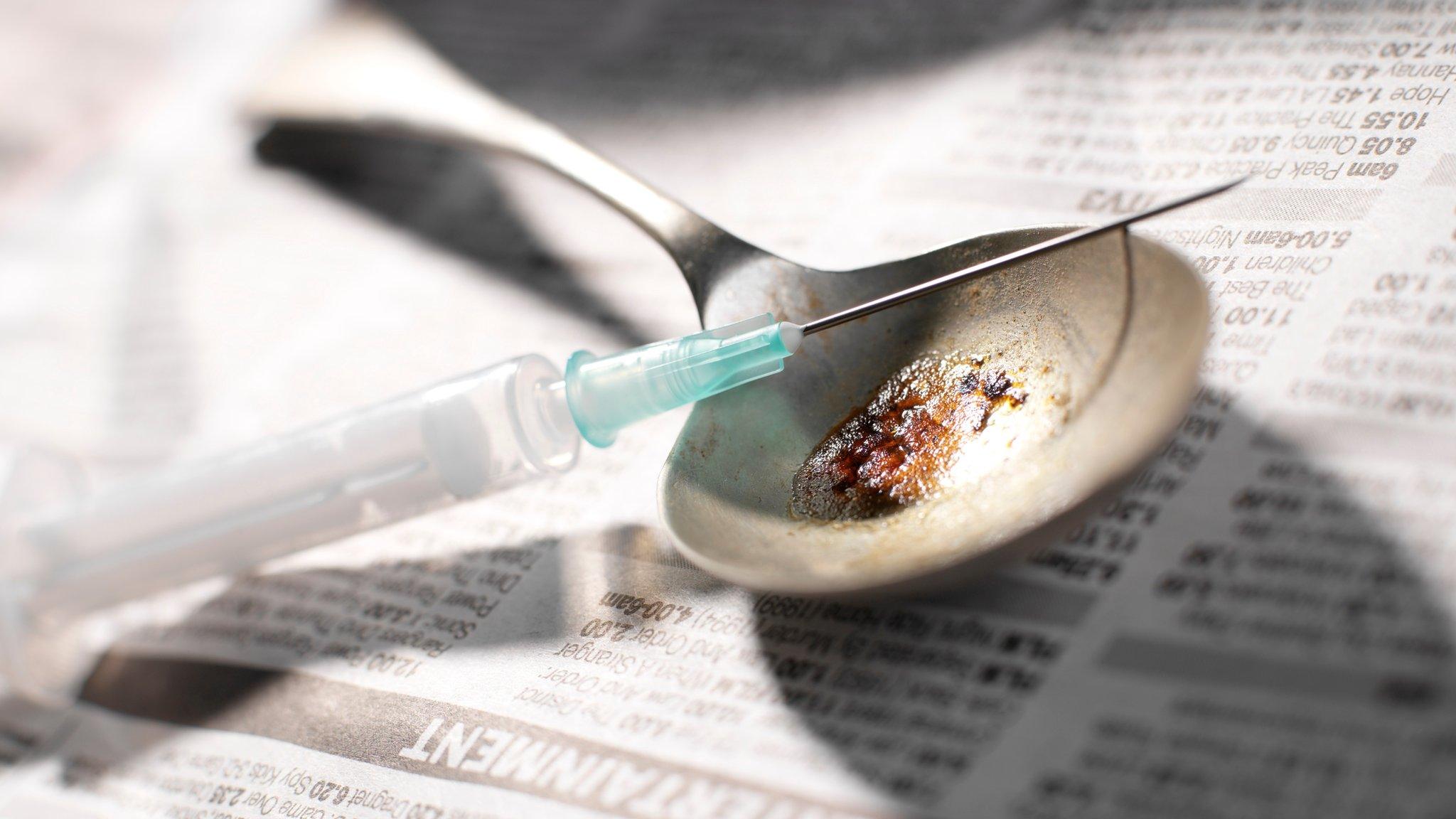Fatal heroin overdoses to rise again, charity warns
- Published
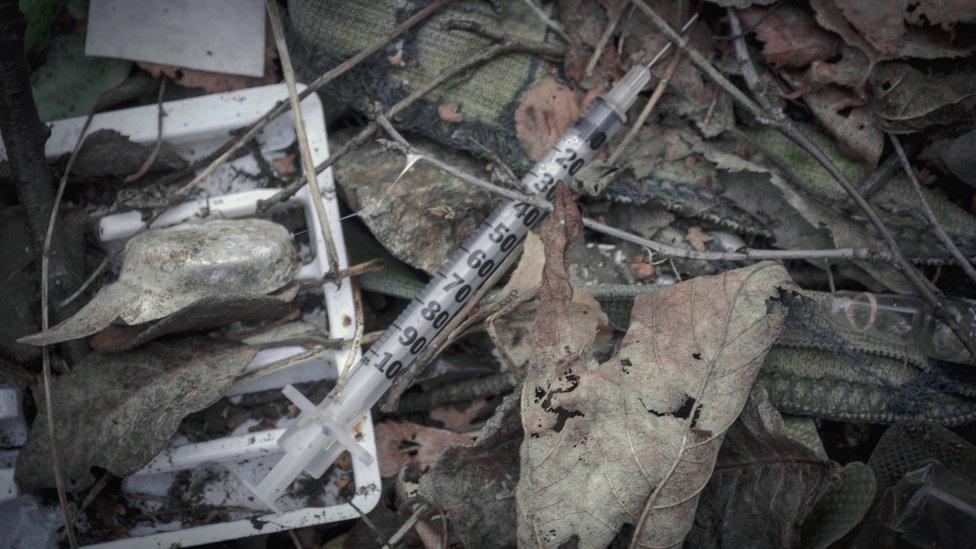
Fatal heroin overdoses will rise in 2017 because of the strength of the drug and the number of users unknown to the services, a charity has warned.
Drugaid Cymru said all agencies involved have to "get to grips" with the problem.
It follows latest figures showing a 50% rise in all drug-related deaths in 2015 after five years of falls.
The Welsh Government said its priority was to see a fall again and would consider options to tackle the issue.
Ifor Glyn, regional director of Drugaid Cymru, which covers mid and south Wales, also said it had to be a priority.
"It's a massive issue for us as a provider and the Welsh Government," he said.
"Deaths are likely to go up as there is a lot more heroin around, the purity of heroin has been stronger and there's a lot more people who are not known to the services.
"We weren't able to engage with them. It's something that agencies like ourselves and across Wales have got to get to grips with."
Mr Glyn suggested a way forward could be to get users to act as informers.
He also made a renewed call to introduce "fix rooms" for users to take their drugs under medical supervision.
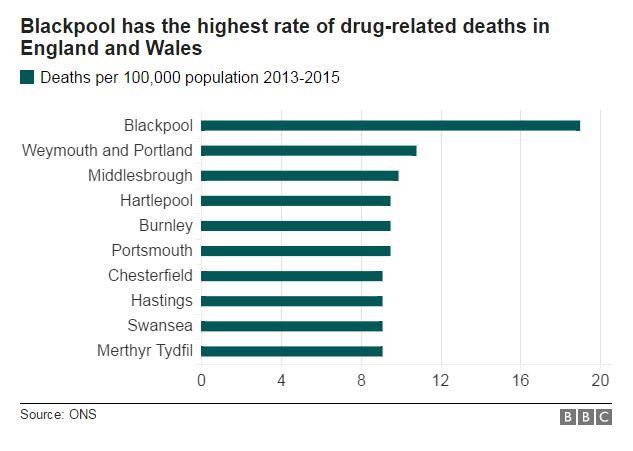
It follows approval in October to open a centre in Glasgow, which would be the first in the UK.
"Allowing people to inject in a room is highly controversial," Mr Glyn said.
"I don't want to see people taking drugs but you've got to be pragmatic.
"There's tonnes of evidence supporting injecting rooms."
The Welsh Government spends £50m annually on its substance misuse delivery plan and between 2016 and 2018 it is looking at what can be done to address the rise in drug deaths.
A spokesman said: "Our main priority over the coming year will be to take action to return to a position where drug related deaths are falling in Wales.
"We are working closely with partners to evaluate the reasons behind the increase and to take action to address it.
"This includes working with the substance misuse area planning boards so that everything possible is done to reach those individuals currently not in touch with substance misuse services."
- Published26 November 2016
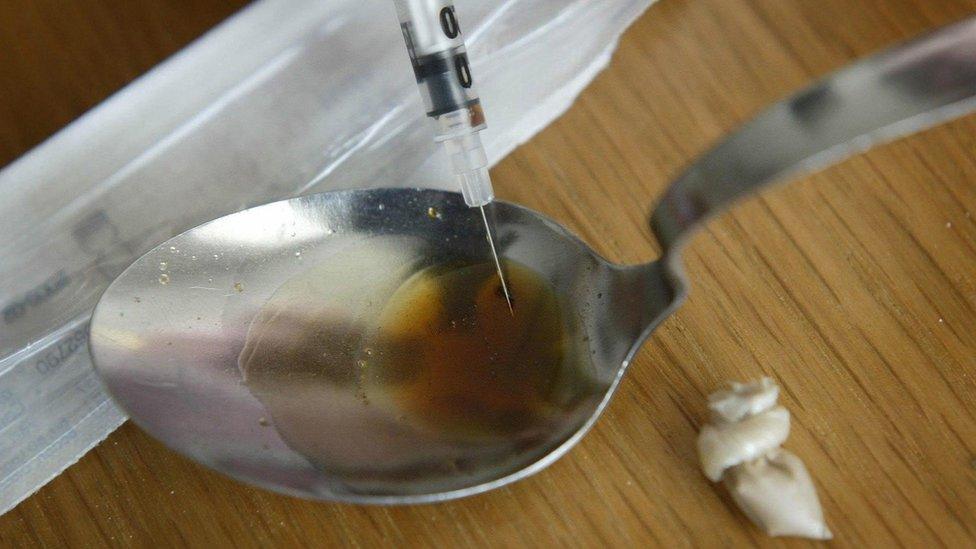
- Published31 October 2016
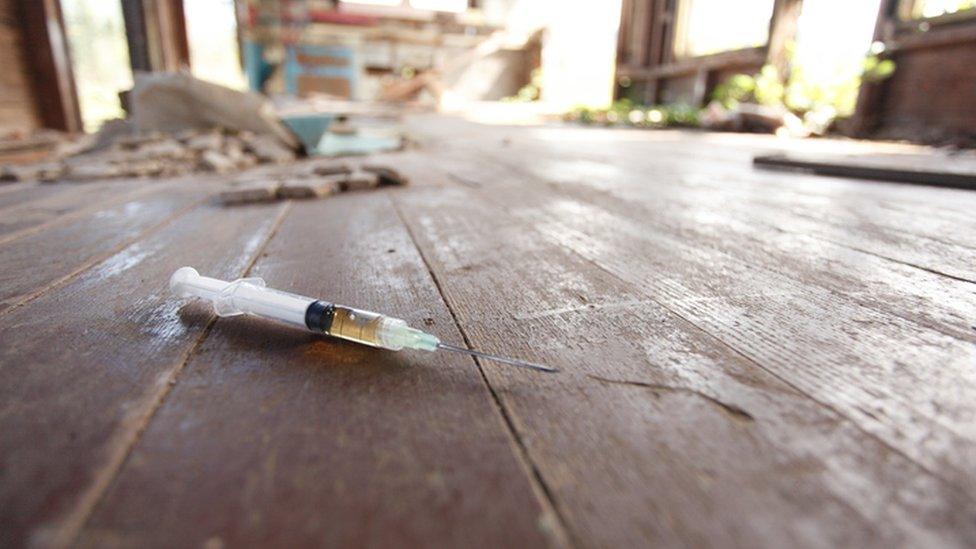
- Published9 September 2016
